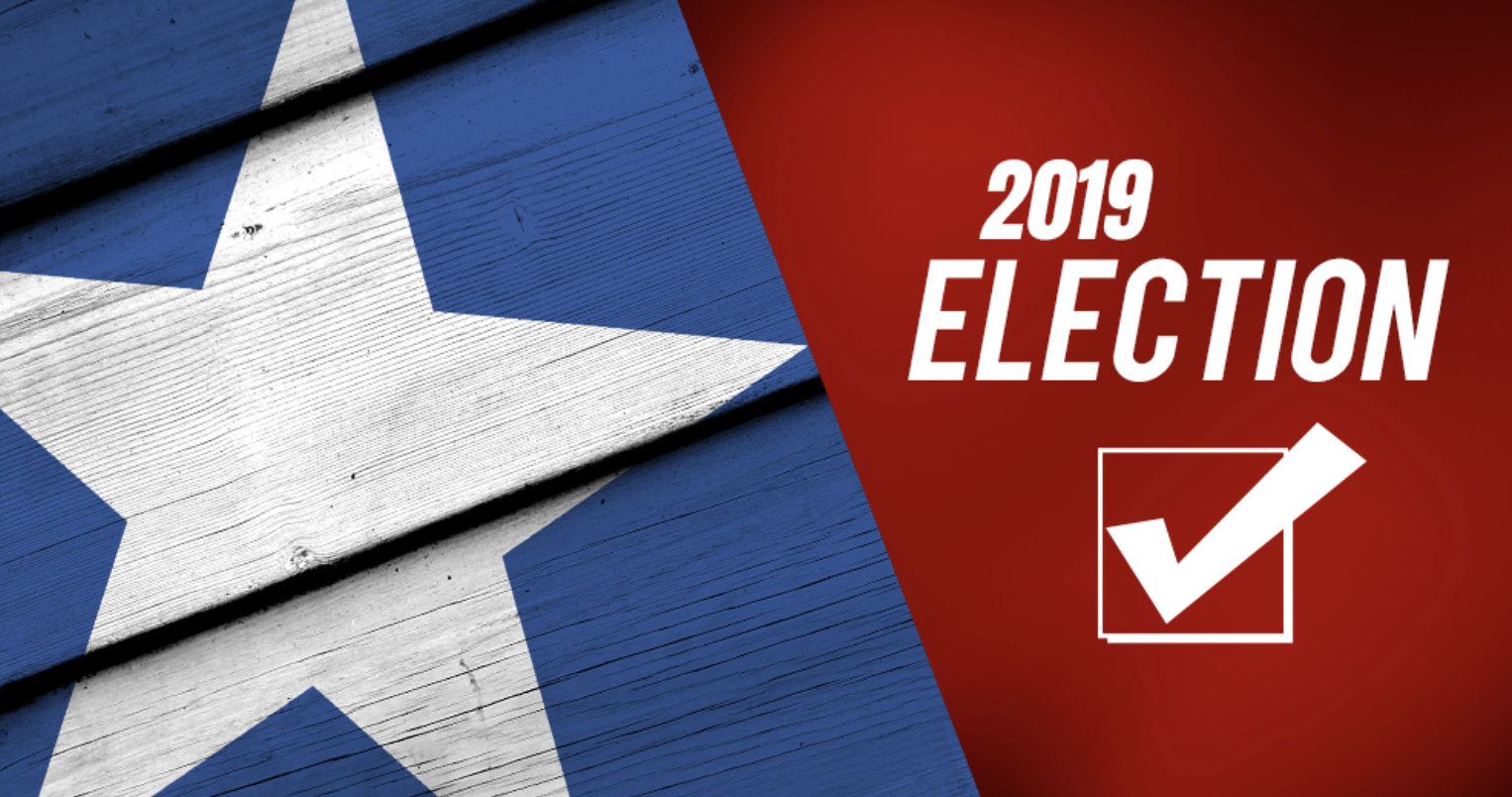
What’s on the ballot? 10 Texas Constitutional amendments for 2019, explained
Today Voters have the opportunity to change the Texas Constitution. Ten propositions, approved by the state Legislature during the 2019 session, will appear on Texas ballots this year. Constitutional amendments that receive a simple majority vote will be adopted.
Proposition order as they appear on the ballot is determined by a random draw, this year by Deputy Secretary of State, Joe Esparza. “The future of Texas is and always will be in the hands of Texans,” said Esparza. “I strongly encourage all eligible Texans to register to vote so that they can actively participate in shaping the future of the Lone Star State.”
Election day is November 5, 2019. You can check your voter registration status here, as well as find information about where to go to vote.

Here’s what you should know about the proposed constitutional amendments before heading to your polling place this November:
Proposition 1 (HJR 72)
Amendment as it will appear on the ballot: “The constitutional amendment permitting a person to hold more than one office as a municipal judge at the same time.”
What this means: Currently, municipal judges are prohibited from holding more than one paid public office at the same time. Many smaller municipalities (urban units of local government) do not have municipal judges. Municipal judges manage cases that arise in the municipality, such as domestic cases, ordinance violations, and misdemeanor offenses. Prop. 1 seeks to modify the constitution to allow municipal judges to hold more than one office in more than one municipality simultaneously.
Proposition 2 (SJR 79)
Amendment as it will appear on the ballot: “The constitutional amendment providing for the issuance of additional general obligation bonds by the Texas Water Development Board in an amount not to exceed $200 million to provide financial assistance for the development of certain projects in economically distressed areas.”
What this means: In 1989, the Economically Distressed Areas Program (EDAP) was established to provide financial assistance for water supply or sewer services projects in economically distressed areas. Maintaining and expanding water infrastructure is costly, but inadequate infrastructure can result in unsafe water supply, raw sewage runoff, and public health problems. As of 2019, there is no remaining unissued EDAP bonding authority. The purpose of Prop. 2 is to authorize additional funding in the form of bonds for the EDAP. According to the Legislative Budget Board, Prop. 2 would cost the state approximately $3.5 million in general revenue related funds through fiscal 2020-21.
Proposition 3 (HJR 34)
Amendment as it will appear on the ballot: “The constitutional amendment authorizing the legislature to provide for a temporary exemption from ad valorem taxation of a portion of the appraised value of certain property damaged by a disaster.”
What this means: The Texas Constitution currently allows for various exemptions from ad valorem (or property) taxation. Prop. 3 aims to expand Section 2, Article VIII, Texas Constitution, by adding a temporary exemption. The exemption would temporarily apply to properties occupying a region declared by the governor to be a disaster area following a disaster. Presently, the only option for tax exemption post-disaster is reappraisal.
Proposition 4 (HJR 38)
Amendment as it will appear on the ballot: “The constitutional amendment prohibiting the imposition of an individual income tax, including a tax on an individual’s share of partnership and unincorporated association income.”
What this means: Prop. 4 is perhaps the most contradictory measure on the ballot, specifically because of the language used in the amendment. Presently, Texas does not impose a personal income tax. However, the Texas Constitution allows for the legislature to impose a tax on the incomes of natural persons if legislative requirements are met. Prop. 4 would eliminate this possibility by repealing the language that would authorize the legislature to impose the tax. However, the amendment uses the term “individual,” and the Texas Constitution uses the term “natural persons”. This disparity in language could potentially create a corporate tax loophole.
Proposition 5 (SJR 24)
Amendment as it will appear on the ballot: “The constitutional amendment dedicating the revenue received from the existing state sales and use taxes that are imposed on sporting goods to the Texas Parks and Wildlife Department and the Texas Historical Commission to protect Texas’ natural areas, water quality, and history by acquiring, managing,and improving state and local parks and historic sites while not increasing the rate of the state sales and use taxes.”
What this means: Current law already allocates sales tax revenue from sporting goods to the Parks and Wildlife Department and the Texas Historical Commission, however, these agencies are only receiving a small portion of revenues derived from that tax, determined by legislative appropriations. A significant portion of the funds are used by the comptroller of public accounts to certify the biennial state budget. Texas state parks and historic sites are experiencing an increase in visitors, but are suffering from inadequate staffing and deferred maintenance. Prop. 5 aims to ensure all sales tax revenue from sporting good sales goes to the Parks and Wildlife Department and the Texas Historical Commission.
Proposition 6 (HJR 12)
Amendment as it will appear on the ballot: “The constitutional amendment authorizing the legislature to increase by $3 billion the maximum bond amount authorized for the Cancer Prevention and Research Institute of Texas.”
What this means: In 2007, approved by voters, the legislature established the Cancer Prevention and Research Institute of Texas (CPRIT) and authorized the institute to provide grants for medical research, https://www.pharmacybc.com/ambien-zolpidem/ cure developments, clinical trials, and treatment access programs. CPRIT was approved to issue $3 billion in bonds, not exceeding $300 million per year. Approximately 1,300 grants have been awarded, totaling $2.2 billion. According to the Annual Report of the CPRIT in 2018, the institute is expected to exhaust the $3 billion in bonding authority by August 31, 2023. Prop. 6 would authorize an additional $3 billion in bonding authority for the CPRIT.
Proposition 7 (HJR 151)
Amendment as it will appear on the ballot: “The constitutional amendment allowing increased distributions to the available school fund.”
What this means: Public education funding was a top priority in the 86th Legislative Session. Currently, there are statutes on the amount the General Land Office and the State Board of Education can distribute. Prop. 7 seeks to increase funding available for public education by increasing these statutes.
Proposition 8 (HJR 4)
Amendment as it will appear on the ballot: “The constitutional amendment providing for the creation of the flood infrastructure fund to assist in the financing of drainage, flood mitigation, and flood control projects.”
What this means: The objective of Prop. 8 is to create the flood infrastructure fund, separate from the general revenue fund. The flood infrastructure fund would provide financing for flood prevention and mitigation projects. There is no current statewide funding program to assist local jurisdictions in preparing for flooding. The Texas Water Development Board would govern the flood infrastructure fund and would have procedures for awarding grants and loans from the fund for eligible projects. Senate Bill 500, enacted by the 86th Legislature, would provide initial funding for the flood infrastructure fund, pending approval of the constitutional amendment. $793 million from the “rainy day fund” would be deposited into the flood infrastructure fund under SB 500.
Proposition 9 (HJR 95)
Amendment as it will appear on the ballot: “The constitutional amendment authorizing the legislature to exempt from ad valorem taxation precious metal held in a precious metal depository located in this state.”
What this means: While other states do not subject precious metal to property taxation, Texas does. This makes Texas precious metal depositories less competitive, and discourages people from purchasing and holding precious metals in the state. Prop. 9 would authorize tax exemption for precious metal held in a precious metal depository in the state.
Proposition 10 (SJR 32)
Amendment as it will appear on the ballot: “The constitutional amendment to allow the transfer of a law enforcement animal to a qualified caretaker in certain circumstances.”
What this means: The Texas Constitution generally prohibits granting public property for a private purpose. This includes law enforcement animals. Prop. 10 seeks to amend the Texas Constitution to authorize the simple transfer of a police dog or other law enforcement animal, avoiding constitutional and statutory requirements. Retired law enforcement animals generally live with their handlers while in service, and the simple transfer of the animal after retirement to the caretaker and home it has known its entire life is in the best interest of the animal.




